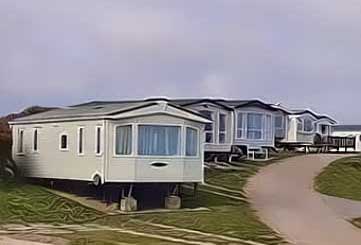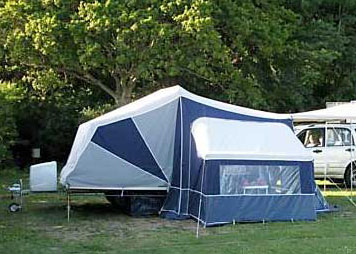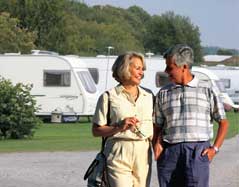Buying your first touring caravan is an exciting milestone, but it’s essential to understand the towing rules and regulations in England, Scotland, and Wales. In this article, we will discuss the changes that took place on 16 December 2021, which should not affect your caravan insurance needs. We’ll also provide some tips for driving a car and trailer for the first time.
Towing Regulations Prior to 16 December 2021: Understanding Different Licence Categories
Before the changes on 16 December 2021, towing regulations varied depending on when you passed your car driving test. Here’s a summary of the previous rules:
- Licences issued before 1 January 1997: Allowed to drive a vehicle and trailer combination up to 8,250kg maximum authorised mass (MAM).
- Licences issued from 1 January 1997 to 18 January 2013: Allowed to drive a car or van up to 3,500kg MAM towing a trailer of up to 750kg MAM (up to 4,250kg in total) or a trailer over 750kg MAM, as long as it was no more than the unladen weight of the towing vehicle (up to 3,500kg in total).
- Licences issued from 19 January 2013: Allowed to drive a car or van up to 3,500kg MAM towing a trailer of up to 750kg MAM (up to 4,250kg in total) or a trailer over 750kg MAM, as long as the combined MAM of the trailer and towing vehicle was no more than 3,500kg.
The Impact of the 16 December 2021 Changes on Towing Rules
As of 16 December 2021, drivers who passed their car driving test from 1 January 1997 are now allowed to tow trailers up to 3,500kg MAM.
The Driver and Vehicle Licensing Agency (DVLA) will automatically update your driving licence record to reflect the new towing rules, so you don’t need to contact them directly. The next time you apply for a new driving licence, category BE will be added to your licence.
If you passed your car driving test before 1 January 1997, these changes will not affect you.

England Scotland and Wales Caravan Towing
| Licence Issue Date | Allowed Towing Capacity |
|---|---|
| Before 1 Jan 1997 | Vehicle & trailer combination up to 8,250kg MAM |
| 1 Jan 1997 – 18 Jan 2013 |
Car or van up to 3,500kg MAM towing: – Trailer up to 750kg MAM (max. 4,250kg total) – Trailer over 750kg MAM, no more than unladen weight of towing vehicle (max. 3,500kg total) |
| From 19 Jan 2013 |
Car or van up to 3,500kg MAM towing: – Trailer up to 750kg MAM (max. 4,250kg total) – Trailer over 750kg MAM, combined MAM of trailer & towing vehicle no more than 3,500kg |
Guidelines for Driving a Car and Trailer for the First Time
Driving a car and trailer for the first time can be a little intimidating. To help you feel more confident and safe on the road, consider the following tips:
- Take training from a qualified driving instructor who specialises in towing.
- Familiarise yourself with the ‘National standard for driving cars and light vans’, which outlines the skills, knowledge, and understanding needed to tow a trailer or caravan.
- Read up on why learning to tow is essential and the safety checks you should perform when towing a trailer or caravan with a car.
The End of Car and Trailer Driving Tests: What to Expect
As a result of the changes on 16 December 2021, car and trailer driving tests are no longer available. If you had booked a test yourself, the Driver and Vehicle Standards Agency (DVSA) would have automatically cancelled and refunded it for you. If your driving instructor booked your test, talk to them about the next steps.
Please note that you cannot get a refund or compensation for any training you’ve taken to help you prepare for the test.
Refunds and Compensation for Previously Passed Car and Trailer Driving Tests
Unfortunately, you cannot get a refund or compensation for any training you took to help you prepare for a car and trailer driving test. This also applies to any tests you took in the past. While this may be disappointing, the skills and knowledge you gained during your training will still prove valuable when towing a touring caravan.
In conclusion, understanding the towing rules and recent changes in England, Scotland, and Wales is crucial for those looking to buy their first touring caravan or upgrade to a heavier one. Familiarise yourself with the new regulations, consider taking professional towing training. By doing so, you’ll be better prepared to enjoy your new caravan safely and responsibly on the road.

Towing Rules in Northern Ireland: Categories B and B+E
When towing a touring caravan in Northern Ireland , it’s important to be familiar with the local towing rules and regulations. The two key licence categories to be aware of are Category B and Category B+E.
Northern Ireland Caravan Towing
| Licence Category | Towing Conditions |
|---|---|
| Category B |
Vehicles up to 3,500 kg MAM with up to 8 passenger seats: – Trailer over 750 kg MAM, combined MAM not exceeding 3,500 kg – Trailer up to 750 kg MAM, combined weight not exceeding 4,250 kg MAM |
| Category B+E |
Vehicles up to 3,500 kg MAM towing trailers: – More than 750 kg MAM but not exceeding 3,500 kg MAM – Total weight not more than 7,000 kg MAM |
Category B+E licences allow you to tow vehicles up to 3,500 kg MAM with trailers more than 750 kg MAM but not exceeding 3,500 kg MAM. The total weight must not be more than 7,000 kg MAM. Category B licence holders who passed their test on or after 1 January 1997 need to pass a further practical test for Category B+E, while those who passed before this date already hold B+E entitlement.
Towing Caravans: Weight Recommendations and Licence Requirements
When towing a caravan in Northern Ireland, it’s advisable to follow general guidelines that recommend the laden weight of your caravan doesn’t exceed 85% of your car’s unladen weight. This is not legally required but helps improve stability when towing a caravan. You can tow caravans of a greater weight if you hold the appropriate licence category.
Construction and Use Regulations for Towing in Northern Ireland
In addition to the licence requirements, Northern Ireland also has construction and use regulations that may apply when towing a caravan. Vehicle manufacturers typically recommend a maximum trailer weight based on these rules. To find the recommended weight for your vehicle, consult your vehicle’s handbook or contact your local car dealership.
In summary, understanding towing rules and regulations in Northern Ireland is essential for those planning to tow a touring caravan. Familiarise yourself with the licence categories and weight recommendations. By doing so, you’ll enjoy a safe and stress-free caravanning experience.
Towing Mirrors: Essential for Caravan Safety and Legality
Towing mirrors are not just an optional accessory for caravanners; they are legally required for a safe and compliant towing experience. The law mandates that drivers must have mirrors that allow clear visibility of an area 4 metres wide from the side of the caravan and 20 metres behind the driver. Without towing mirrors, you could face penalties, including a £1,000 fine and three points on your licence.
Don’t Tow Blind: Know the Law on Towing Mirrors
Driving without towing mirrors creates a significant blind spot, making it difficult to spot cars, cyclists, or motorcyclists behind your caravan. This puts other road users at risk and could lead to potentially life-threatening accidents. Ensure you’re aware of the legal requirements for towing mirrors and invest in a quality pair to enhance safety on the road.
Stay Safe and Legal: Invest in Towing Mirrors for Your Caravan
Towing mirrors are a crucial investment for caravanners, ensuring you remain compliant with the law and reduce the risk of accidents. Starting at around £20 a pair, there’s no excuse for not equipping your vehicle with the necessary mirrors. Consider award-winning options like Milenco towing mirrors, which have received accolades from Practical Caravan Magazine, to enhance your caravanning experience and prioritise safety.
Finding Your Car’s Safe Towing Capacity for a Caravan
Determining the safe towing capacity of your car is essential for a comfortable and secure caravanning experience. To find this information, you can consult your vehicle’s handbook or calculate it using the VIN plate. On the VIN plate, subtract line one (maximum allowable mass) from line two (maximum train mass) to obtain the vehicle’s towing limit.
To ensure a safe towing experience, particularly for novices, many towing experts recommend adhering to the 85% rule. This guideline suggests that the fully laden weight of the caravan should not exceed 85% of the car’s kerbweight. Keep in mind that this is only a recommendation and not legally enforceable.
Calculating this percentage requires two key figures: the kerbweight of your car and the maximum technically permissible laden mass (MTPLM) of the caravan. If the caravan’s mass is 85% or less of your car’s kerbweight, it will be towed with ease. If the mass is between 85% and 100%, caution is advised, as only experienced caravanners should tow a caravan of this weight. If the caravan is heavier than the car, it is strongly recommended not to use that vehicle for towing.
Another method is to use a tow car and caravan matching website like https://towcar.info/ . This service is free of charge and goes much further than just looking a kerb weights and the 85% rule. The report you get gives you details such as the capability of the combination on hills, risk of snaking etc.
By understanding your car’s safe towing capacity and adhering to expert advice, you can enjoy a more secure and enjoyable caravanning experience.
Trailer, Caravan and Towing Equipment Safety and Fines
“Your trailer, caravan, and towing equipment”: https://www.gov.uk/towing-with-car/trailer-and-towing-equipment must adhere to specific safety standards and be used correctly
If you are stopped by the Police and found to be using a vehicle in a dangerous or overloaded condition prosecution can result in a fine of up to £2,500, a driving ban, and 3 penalty points. You really do need to perform safety checks to ensure compliance with legal requirements before you travel with you touring caravan.
Tow Bars
If you have a tow bar fitted to your car you must ensure that it is ‘type approved’ tow bar, which means it complies with the relevant regulations and is designed for your car. Type-approved tow bars have a label displaying an approval number and approved vehicle details. Tow bars for cars first used before 1 August 1998 do not require type approval.
Towing Mirrors
Ensure adequate rear view by fitting appropriate towing mirrors if your trailer or caravan is wider than your car’s rear. Failing to use proper towing mirrors can result in a fine of up to £1,000 and 3 penalty points.
Trailer or Caravan Brakes
Trailers with a loaded weight exceeding 750kg must have a functioning brake system. Some smaller trailers may have optional brakes. Any brakes should be in good working order. You should use a breakaway cable or secondary coupling in case the trailer detaches from your car.
Number Plates
Display the same number plate on your trailer as on your towing car. If towing multiple trailers, attach the number plate to the rear trailer. This must be to the same standard design as the number plate on your car. Hand drawn number plates are not acceptable.
Width and Length Limits
The maximum trailer width is 2.55 meters, while the maximum length for a trailer towed by a vehicle weighing up to 3,500kg is 7 meters, excluding the A-frame.
Caravan Tyre Inspection and Maintenance
Regularly inspect and maintain your caravan’s tyres, focusing on three main aspects:
Tyre inflation pressure Tyre wear Tyre ageCheck tyre pressure before significant journeys and every few weeks when the caravan is in storage. Use a reliable digital tyre pressure gauge, as garage forecourt gauges may be inaccurate. Consult your caravan manual for the correct tyre pressure based on load.
Replace tyres if their tread depth falls below the legal minimum (1.6mm) or if they show uneven wear, which could indicate worn bearings or a sticking brake.
Experts recommend replacing caravan tyres at five years old, with a maximum age limit of seven years. Tyres deteriorate with age, increasing the risk of failure. Regularly check for cuts, bulges, and cracking, replacing damaged tyres immediately.
Caravan insurance policies typically don’t cover tyre bursts or punctures. To determine a tyre’s manufacturing date, locate the series of characters starting with “DOT” followed by a four-digit number, representing the week and year of production.
When purchasing a second-hand caravan, inspect the tyres, and use their condition as a negotiating point. Consider replacing older tyres for safety.
Some of the Insurances We Offer

Static Caravan Insurance
We offer comprehensive insurance coverage for your static caravan, including protection against storm, flood, accidental damage, and more.
Static Caravan Insurance
Trailer Tent Insurance
Protect your trailer tent with our caravan insurance policy, covering everything from loss or theft to accidental damage.
Trailer Tent Insurance
Caravan Insurance
Our touring caravan insurance policy provides comprehensive protection for your home from home, including damage, theft, and liability coverage.
Caravan Insurance